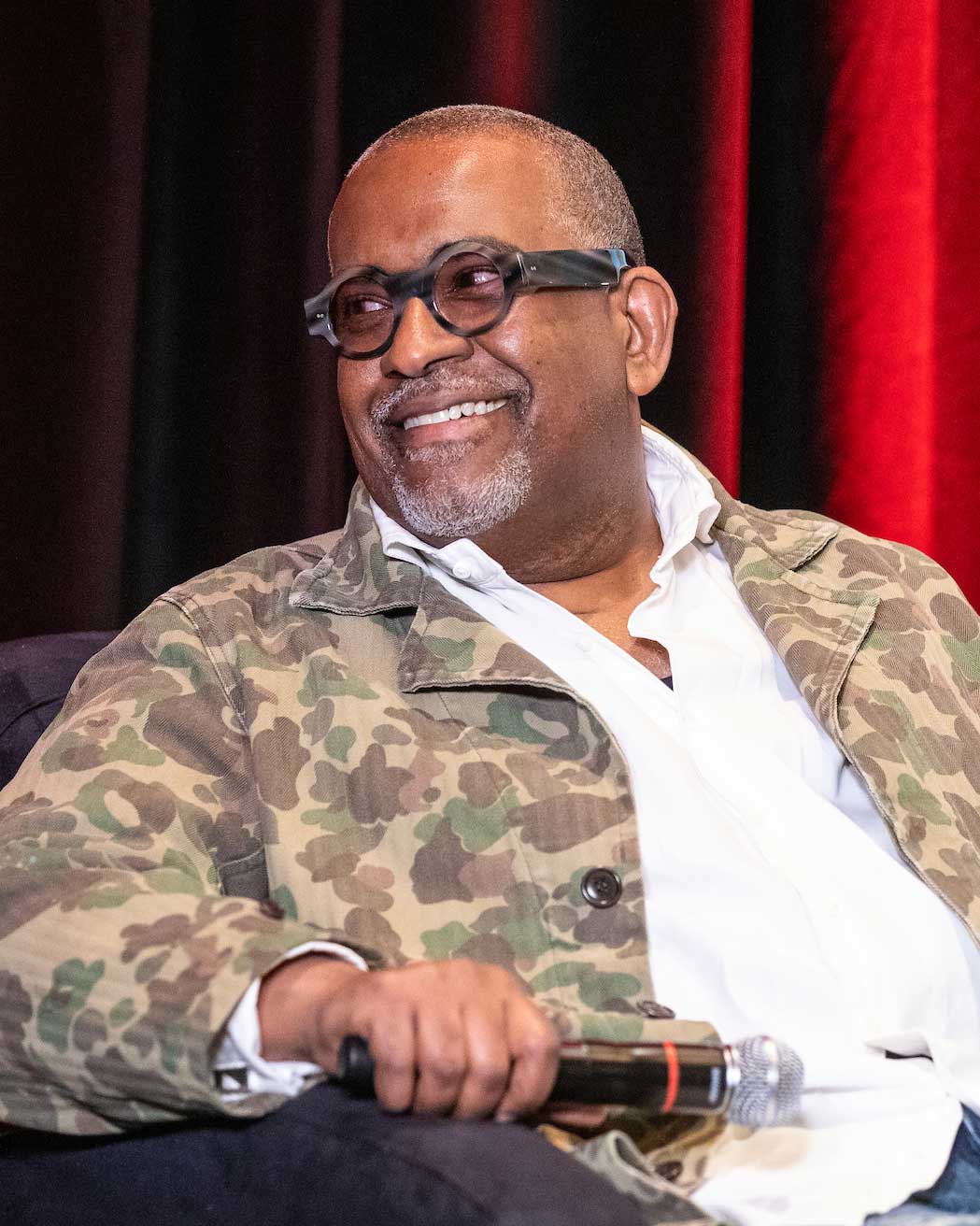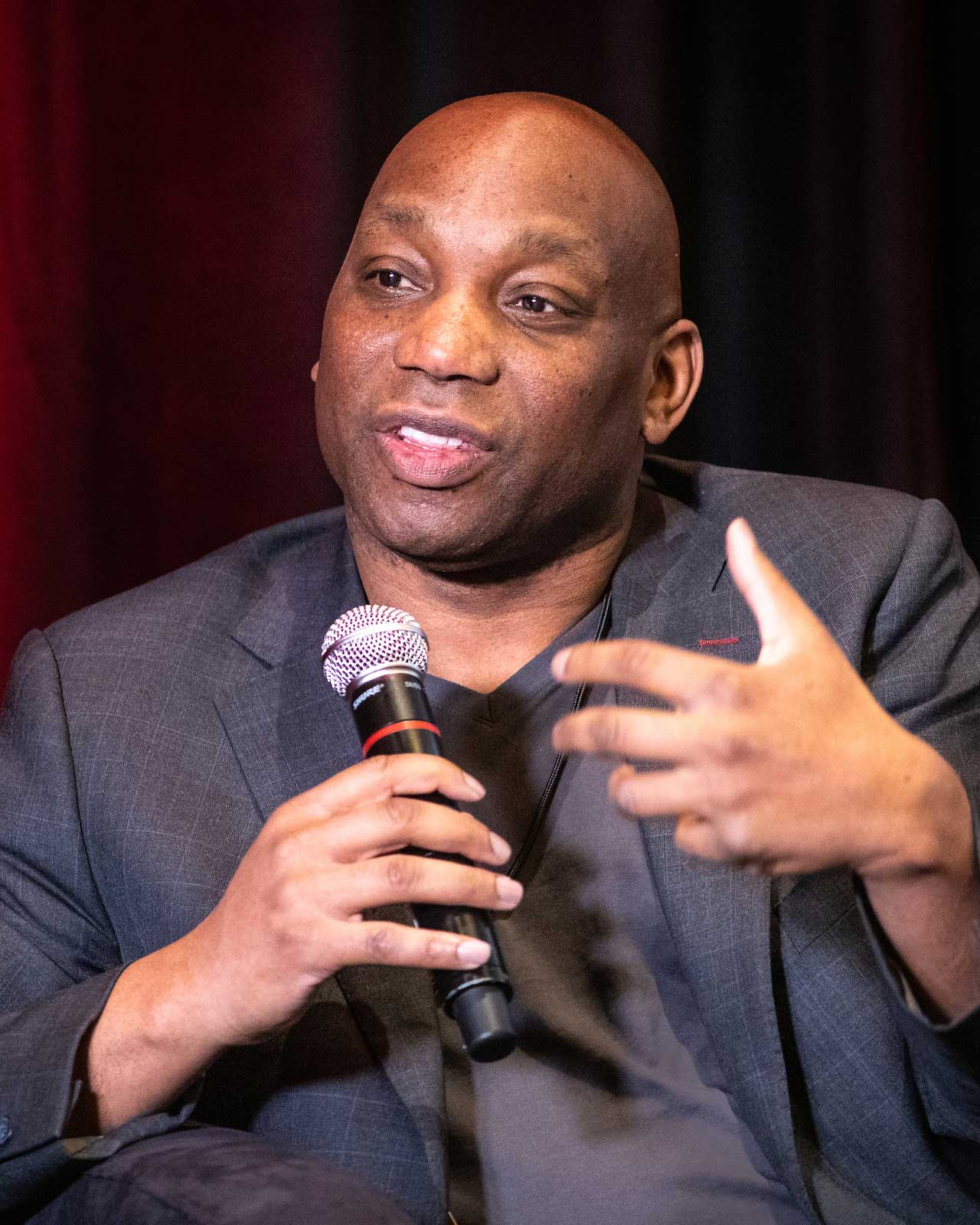Looking at sports as a microcosm of racial, gender disparities in society

Sports is a microcosm of the racial and gender issues facing society, and it often serves as the vehicle for change, according to several experts who spoke at the second Global Sport Summit held by the Global Sport Institute at Arizona State University on Thursday and Friday.
Kenneth Shropshire, CEO of the Global Sport Institute, said that Americans last year marked the 50th anniversary of the 1968 Olympics, when black athletes protested racism, as well as this year commemorating 400 years since the first African slave was brought to America.
“We’re thinking about how important this is, and also it’s a time to think about the progress that’s been made — or not — in that time,” he said.
The summit, which focused on topics of race and inclusion in sport, was sponsored by the Global Sport Institute as well as the Sandra Day O’Connor College of Law, the W. P. Carey School of Business, the School of Community Resources and Development, the Walter Cronkite School of Journalism and Mass Communication, and the School of Historical, Philosophical and Religious Studies. The event was held in downtown Phoenix.
The summit gathered experts from different areas of the world of sports, where several panels addressed racism, sexism and the role of sports in helping refugees, veterans and people with disabilities, as well as how to achieve a career in sports. Here is some of what the speakers had to say:
Sports leagues are profiting from black athletes, who could be leveraging their positions.
Bill Rhoden, former columnist for the New York Times and writer-at-large for ESPN’s “The Undefeated,” said that although black people make up a majority of the athletes in some sports, they are underrepresented among those in power — the management and journalists.
“I’ve been to countless Super Bowls and national championships, and when we go through the tunnels, black folks are not in the spaces of event production and event management,” he said at the morning keynote address. “When you get closer to the field you see the black guys running and jumping, but farther away from the court or the field, we’re not there.”
To address this, ESPN established the Rhoden Fellows, two-year paid journalism internships for students from historically black colleges and universities, who cover race, class and culture for “The Undefeated.”
“When you’re sitting in a room and there’s no black people or women there, you know you’re sitting in the wrong space,” said Rhoden, author of “Forty Million Dollar Slaves: The Rise, Fall, and Redemption of the Black Athlete.”
Rhoden said that star college recruits like Zion Williamson, the Duke University basketball player who is widely expected to become the top pick in the NBA draft, should be making more demands, such as asking Duke to help other black students.
“Zion knows he’s only going to be in school for eight months at best, but there’s probably a deserving young black person in his community with the scores to go to Duke,” Rhoden said.
“Leverage is nothing without strategy and courage. It’s still a slave mentality of not looking white people in the eye,” he said. “If a top-10 kid threatened to walk away, all of a sudden things could happen.”
Race, gender and socioeconomic dynamics are a huge influence on college sports.
Amira Rose Davis, an assistant professor of history, and women's, gender and sexuality studies at Penn State University, said that Title IX is considered to be transformative legislation in women’s sports, and it has increased scholarships and participation for females.
“When Title IX was enacted, coaches of women’s teams were 95% women and now it’s less than 50%,” said Davis, who hosts the “Burn It All Down” podcast and spoke at a panel titled, “Race, Gender and Inclusion in College Sports.”
“There’s disproportionate representation of black women in track and basketball, and in the sports that are growing the fastest — field hockey, golf and tennis — black women make up less than 3%.
“We’ve grown sports but haven’t grown diversity, and we’ve invested in sports that are disproportionately more accessible to middle-class people, like soccer, where you have to play at the club level.”
Jean Boyd, executive senior associate athletic director at ASU, said: “The people with the highest salaries are almost exclusively white male coaches, juxtaposed with the overrepresentation of black male athletes.
“The most overrepresented but the most underachieving population of student-athletes are African American males.”
Boyd said Sun Devil Athletics differs from the typical narrative because there are black people in positions of power, including the athletic director, the head football coach and several other coaches.
Davis said sports can be a driver for social change and that she sees some college athletes leveraging their power. She mentioned the University of Missouri football team, which in 2015 brought attention to long-standing issues of racism on campus by threatening to not play a game.
“Within 24 hours, people were fired,” she said.
“Sports is a connector, and you can talk about hard issues that otherwise people won’t want to talk about,” she said.
Producing real change is complicated.
A panel titled “Policies Driving Progress in Sport and Beyond” tackled the issue of whether change should be mandated, like the Rooney RuleThe Rooney Rule is a National Football League policy started in 2003 requires teams to interview ethnic-minority candidates for head coaching jobs..
Vince Pierson, director of diversity and inclusion for Minor League Baseball, said that the biggest challenge is changing the culture.
“We can insert policies that may create an immediate change, but how do we make it part of our culture and have a true understanding and empathy behind what we’re doing?” he said.
“I always appreciated the intentionality of the Rooney Rule. It’s in place and be revisited and revised. You can’t legislate change to culture, but you can legislate change to behavior and that’s what the Rooney Rule tries to do.”
Pierson said that in Minor League Baseball, there are no mandates, so he must come up with incentives.
“That makes us think about how we’ll genuinely connect. We have a lot of programs to influence our pipeline — we get onto college campuses, we visit with first-generation college students,” he said.
“You have to create rewards. If you have some kind of pat on the back, everybody wants it.”
Mike Haynes, a former football player for ASU and the NFL, said that change must be organic.
“If I’m an NFL owner, I’m going to hire someone I’m comfortable with, and the challenge with the Rooney Rule is you’re hiring someone you don’t know or trust because of this requirement,” said Haynes, who is in the NFL Hall of Fame and used to work with the NFL.
“When I was with the NFL, I wasn’t in favor of it, but it was better than nothing.”
Black athletes face enormous hostility.
Todd Boyd
Todd Boyd, a professor at the University of Southern California, said there’s a double standard when it comes to wrongdoing.
“If an athlete is accused of doing something wrong, it’s a huge story and the underlying component is, ‘What are we going to do about it?’ Lurking beneath the surface is this narrative of black athletes run amok,” said Boyd, who holds the Katherine and Frank Price Endowed Chair for the Study of Race and Popular Culture at USC.
“Hollywood is a community of movie stars and musical artists, and all the same sorts of things that people associate with athletes goes on in these spaces but I don’t know of anyone holding them to the same level of contempt,” he said.
Black athletes are faced with losing everything if they speak out.
Howard Bryant, a writer for ESPN and NPR, is the author of “The Heritage: Black Athletes, a Divided America, and the Politics of Patriotism.”
“I make the argument that in a lot of what is being sold in the American sport milieu is that being black is the worst thing in the world,” he said. “Look what happens to any black athlete who advocates — they take everything.”
Howard Bryant
Bryant said the intertwining of sports and patriotism after 9/11 has heightened racism in sports.
“You’re watching the government use sports as a recruiting tool under the guise of patriotism,” he said. “It’s not patriotism, it’s commerce. You’re selling patriotism at a sporting event at a time when you’re telling black athletes they can’t speak.
“You’re criminalizing the most patriotic thing you could do in this country, which is to speak.”
The pressure isn’t just on the athletes. Pierson, the diversity and inclusion director for Minor League Baseball, said he feels that anxiety as well.
“I sit in boardrooms where I hear statements I should challenge,” he said. “There could be a sacrificial moment in my career where the change I look to create I never get to experience.”
The summit also included a screening of the film, “Through the Banks of the Red Cedar,” as well a showcase of Global Sport Institute research and a pitch competition for entrepreneurs.
The Global Sport Venture Challenge included seven competitors. The winner was Force Impact Technologies, whose CEO is Bob Merriman, who earned his bachelor’s and MBA degrees from ASU. Merriman invented a device called the FITGuard, a mouthpiece worn by athletes that measures the force of an impact and can detect a possible concussion. The mouth guard measures the hit and turns different colors depending on the severity of impact, sending data to a phone app.
Merriman said the device will have a huge potential market in youth and college sports.
“We understand the mindset of the player who wants to be on the field, and we also understand the mindset of the parents,” said Merriman, who won $10,000 and a mentoring trip to the headquarters of adidas in Portland, Oregon.
Top photo: Ken Shropshire (left), CEO of the Global Sport Institute at ASU, holds a keynote discussion with USC Professor Todd Boyd at the Global Sports Summit on Friday in downtown Phoenix. Boyd is an expert on race in pop culture, especially sports and film. Photo by Charlie Leight/ASU Now
More Law, journalism and politics

How to watch an election
Every election night, adrenaline pumps through newsrooms across the country as journalists take the pulse of democracy. We gathered three veteran reporters — each of them faculty at the Walter…
Law experts, students gather to celebrate ASU Indian Legal Program
Although she's achieved much in Washington, D.C., Mikaela Bledsoe Downes’ education is bringing her closer to her intended destination — returning home to the Winnebago tribe in Nebraska with her…

ASU Law to honor Africa’s first elected female head of state with 2025 O’Connor Justice Prize
Nobel Peace Prize laureate Ellen Johnson Sirleaf, the first democratically elected female head of state in Africa, has been named the 10th recipient of the O’Connor Justice Prize.The award,…

